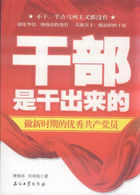[20]美国学者特别强调印度核试是为了争取国际威望。Karl Inderfurth,Danielle Pletka,Joseph Cirincione,Robert Hathaway,Teresita Schaffer,Walter Anderson,Dennis Kux,Robin Raphel,Lee Feinstein,James Clad,Michael Krepon等学者和克林顿时期的政府官员在面谈时都提到这一点。斯蒂芬·科恩在他的著作《印度:崛起的大国》中认为,印度国内一些人从来就没有接受过把印度排斥在正式核国家和联合国安理会常任理事国之外的战后秩序。Stephen P.Cohen,India:Emerging Power,Washington,D.C.:Brookings Institution Press,2002.
[21]美国卡内基国际和平基金会不扩散项目主任Joseph Cirincione于2002年11月25日与笔者交谈时提出的观点。
[22]U.S.Department of Defense(DOD),“Proliferation:Threat and Response”,January 2001.p.23.
[23]“India's Nuclear Forces 2002”,NRDC Nuclear Notebook,Bulletin of the Atomic Scientists,Vol.58,No.2,March‐April,2002,pp.70-72.
[24]David Albright,“Supplement on Fissile Material and Nuclear Weapons in India and Pakistan”,in Joseph Cirincione,ed.,Repairing the Regime:Preventing the S p read of Weapons of M ass Destruction,New York:Routledge,2000.
[25]Joseph Cirincione,Jon B.Wolfsthal,and Miriam Rajkumar,Deadly Arsenals:Tracking Weapons of Mass Destruction,Washington,D.C.:Carnegie Endowment for International Peace,2002,p.191.
[26]David Albright,“India's and Pakistan's Fissile Material and Nuclear Weapons Inventories,End of 1999”,ISIS(Institute for Science and International Security),October 11,2000.In http://www.isis‐online.org/publications/southasia/stocks1000.html;“Pakistan's Nuclear Forces 2001”,NRDC Nuclear Notebook,Bulletin of the Atomic Scientists,Vol.58,No.1,January‐February,2002,pp.70-71.
[27]George Perkovich,“Pakistan's Nuclear Dilemma”,Carnegie Proliferation Round table,September26,2001,in http://www.ceip.org/npp.
[28]印度的基本战略力量见:http://www.thebulletin.org/issues/nukenotes/ma02nukenote.html.
[29]Virtual Information Center(VIC),“India's Nuclear Strike Force:A Special Report”,January 31,2003,p.6.
[30]Times of India,June 15,2001.
[31]U.S.Department of Defense(DOD),“Proliferation:Threat and Response”,January 2001.p.23.
[32]巴基斯坦的基本战略力量参见:http://www.thebulletin.org/issues/nukenotes/jf02nukenote.html.
[33]Gregory Jones,“From Testing to Deploying Nuclear Forces:The Hard Choices Facing India and Pakistan”,RAND Issue Paper,July 2000.
[34]Joseph Cirincione,Jon B.Wolfsthal,and Miriam Rajkumar,Deadly Arsenals:Tracking Weapons of Mass Destruction,Washington,DC:Carnegie Endowment for International Peace,2002,p.7.关于印度和巴基斯坦的核、生、化武器和导弹及核政策的最新情况及分析,见该书第191-219页。
[35]张贵洪:“印巴安全竞争紧锣密鼓”,《东方早报》2003年10月10日,A7。
[36]马加力:《关注印度———崛起中的大国》,天津人民出版社2002年版,第183-186页。
[37]Aftab Alam,U.S.Policy towards South Asia,Delhi:Raj Publications,1998,p.61.
[38]Matthew McKinzie,Zia Main,A.H.Nayyar,and M.V.Ramana,“The Risks and Consequences of Nuclear War in South Asia”,in Smitu Kothari and Zia Mian,eds.,Out of the Nuclear Shadow,Delhi:Lokayan and Rainbow Publishers,2001;“The Consequences of Nuclear Conflict between India and Pakistan”,in http://www.nrdc.org/nuclear/southasia.asp.
[39]“BJP Election Manifesto:Our National Security”,in http://www.bjp.org/manifes/chap8.htm.













